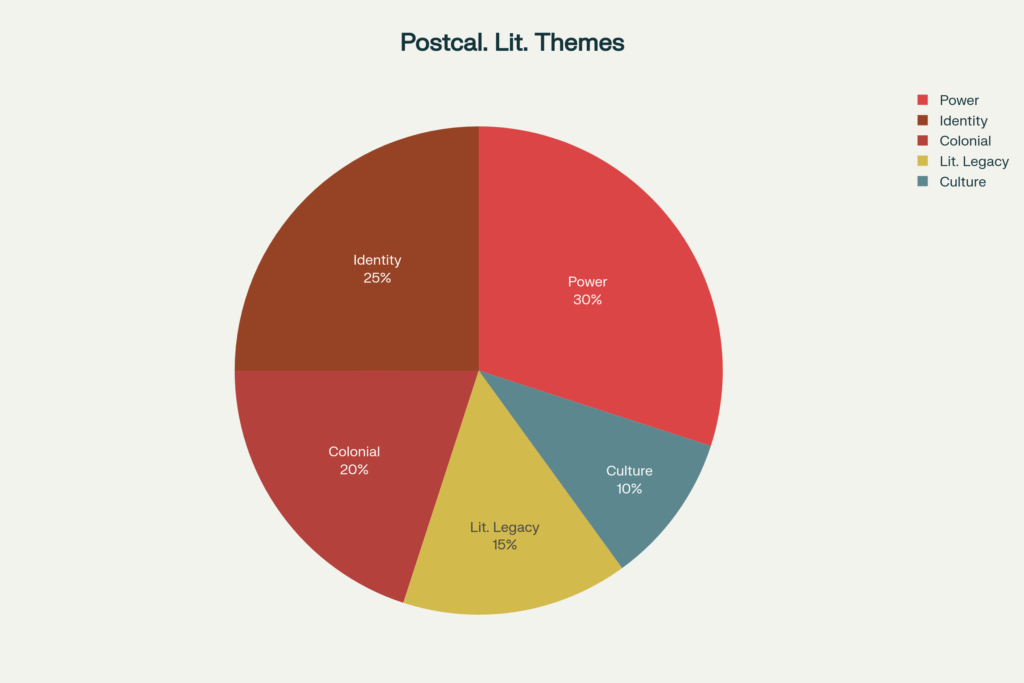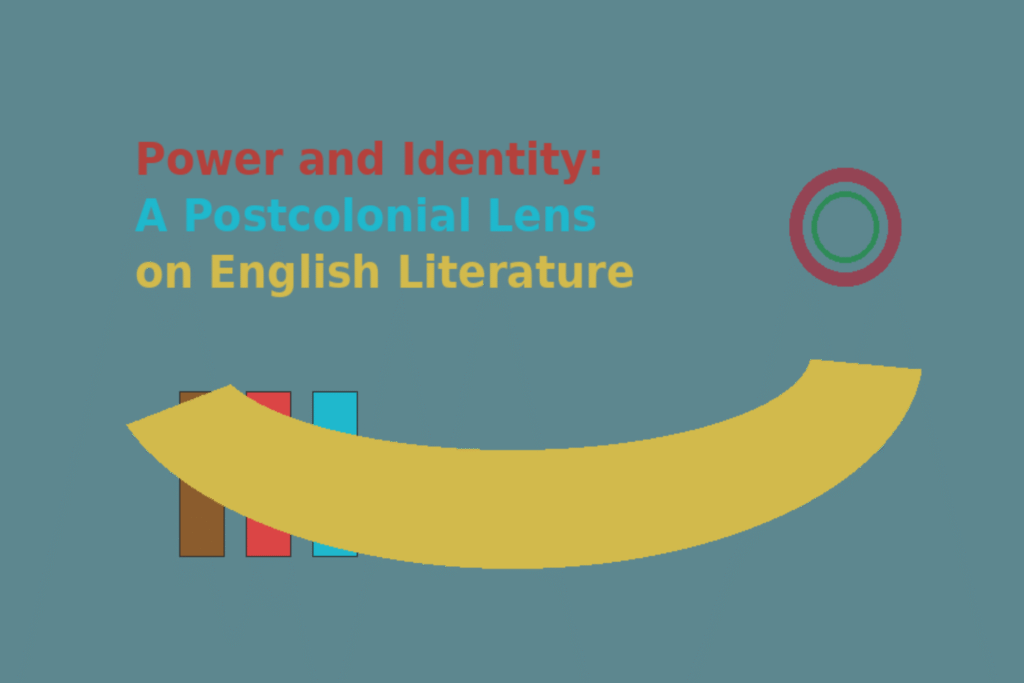Power and Identity: A Postcolonial Lens on English Literature
Introduction: Unveiling Hidden Narratives
English literature, shaped and transmitted through centuries of empire, is more than a collection of classic works—it is a dynamic arena where power struggles and identity negotiations are performed and contested. From the windswept colonies of Africa and Asia to the Caribbean’s vibrant shores, postcolonial writers have taken up the English language to reimagine, rebel against, and reclaim stories silenced by colonial authority. Through these narratives, literature becomes not just a mirror but a weapon—one reflecting and reshaping the legacies of empire.
“You have lied so much to me… you have ended by imposing on me an image of myself… But now I know you, you old cancer, and I know myself as well.”
— Aimé Césaire, A Tempest
Historical and Critical Context
The term postcolonial refers not simply to the historical period following colonization, but also to a critical approach that interrogates the lingering effects of colonial rule on cultures, politics, and identities. As former British colonies gained independence in the 20th century, writers from Africa, the Caribbean, and South Asia used English to tell their own stories, challenge imperial narratives, and redefine what English literature could encompass12.
Foundational theorists have laid the groundwork for how we read and understand these texts:
- Edward Said’s Orientalism (1978) exposed how Western literature constructed the East as exotic and inferior, legitimizing colonial domination.
- Frantz Fanon analyzed the psychological scars of colonization, writing in Black Skin, White Masks and The Wretched of the Earth (1961), “The oppressed will always believe the worst about themselves.”
- Homi K. Bhabha introduced key concepts like hybridity and mimicry, exploring the negotiation of identity in colonial contexts134.

Notable Authors and Seminal Works
The postcolonial canon is broad, reflecting a spectrum of voices and geographies. Some essential authors and texts include:
- Chinua Achebe (Things Fall Apart) — Explores British colonialism’s impact on Igbo society, foregrounding African perspectives and narrative traditions56.
- Salman Rushdie (Midnight’s Children) — Navigates India’s tumultuous transition from colonial rule to independence, blending history with magical realism.
- Ngũgĩ wa Thiong’o (Decolonising the Mind) — Advocates for writing in indigenous languages to reclaim cultural identity.
- Derek Walcott (Omeros) — Reimagines Homeric epic in the context of the Caribbean’s postcolonial experience.
- Buchi Emecheta (The Joys of Motherhood) — Illuminates the intersection of gender, culture, and colonial legacies in Nigeria16.
Key Themes Through the Postcolonial Lens
Postcolonial English literature weaves together recurring motifs. Chief among these are:
1. Power and Resistance
Colonial and postcolonial texts are deeply concerned with questions of authority and dissent. Whether through overt rebellion or the subtle assertion of a marginalized voice, these works highlight the dynamics between colonizer and colonized.
- Example: In Achebe’s Things Fall Apart, Okonkwo’s resistance to change parallels the community’s struggle against imposed colonial rule54.
2. Identity and Hybridity
The quest for selfhood—personal and national—is central. Postcolonial writers grapple with hybrid identities, often straddling multiple cultural worlds. Bhabha’s concept of “hybridity” describes new cultural forms emerging from colonial encounters137.
- Example: Rushdie’s characters in Midnight’s Children are “changelings,” embodying the mixed legacies of empire.
3. Language as Power
English, the language of the colonizer, becomes both a tool of oppression and liberation. Many postcolonial writers appropriate and transform English, infusing it with local idioms and narrative forms.
- Example: Ngũgĩ wa Thiong’o’s Decolonising the Mind calls for authentic expression through native languages as an act of cultural resistance.
4. Otherness and Representation
Colonial literature often cast colonized subjects as ‘the Other.’ Postcolonial texts challenge these misrepresentations, reclaiming the right to self-definition.
“Between me and the other there is only contact—a conflict.”
— Frantz Fanon, Black Skin, White Masks
5. Diaspora and Displacement
Migration, whether forced or voluntary, and the resulting feelings of alienation, are common. Characters often confront questions of belonging in unfamiliar or hostile environments7.
Literary Techniques and Innovations
Postcolonial writers deploy a variety of narrative strategies to subvert colonial discourse:
- Mimicry and Satire: Imitating and mocking colonial conventions to expose their absurdities.
- Magical Realism: Blending myth, folklore, and historical reality (as in Rushdie’s works), challenging Western models of storytelling.
- Nonlinear Narratives: Breaking Eurocentric narrative forms to foreground indigenous temporalities and perspectives.
- Intertextuality: Responding to classics of the English canon—Jean Rhys’s Wide Sargasso Sea gives voice to the silenced “madwoman” of Jane Eyre, reversing narrative authority.

Critical Insights: Why Postcolonial Literature Matters
Postcolonial literature compels readers to re-examine familiar texts, question inherited stories, and recognize the ongoing legacies of colonial power. It enriches English literature by expanding its boundaries—both geographically and imaginarily—and insists, above all, on the importance of telling one’s own story. As readers, educators, and students, engaging with postcolonial works is not only an act of literary appreciation but a journey toward empathy, justice, and global understanding.
Frequently Asked Questions (FAQ)
What is postcolonial literature?
Postcolonial literature refers to works produced by writers from countries that were colonized, often addressing the aftermath of colonization, issues of identity, resistance, and the legacies of cultural and political domination12.
Who are some important postcolonial authors in English literature?
Notable authors include Chinua Achebe (Things Fall Apart), Salman Rushdie (Midnight’s Children), Ngũgĩ wa Thiong’o (Decolonising the Mind), Derek Walcott (Omeros), and Buchi Emecheta (The Joys of Motherhood)68.
How does postcolonial theory change our reading of English literary classics?
Postcolonial theory encourages readers to examine how canonical texts reflect or reinforce colonial perspectives, and to seek out voices and stories that challenge or ‘write back’ to those dominant narratives14.
For more insightful explorations of literature, identity, and power, continue visiting www.englishliterature.in—where every story matters, and every voice counts
Deconstructing Postcolonial Voices in Modern English Novels

